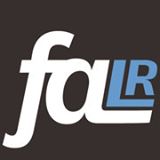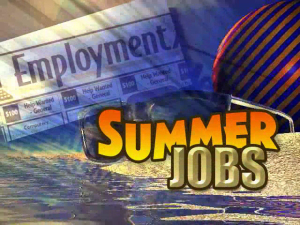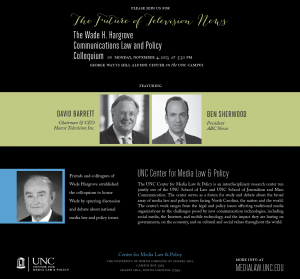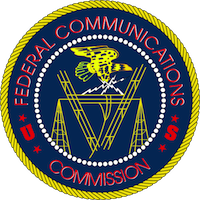 On October 24, 2014, we will be partnering with the First Amendment Law Review to help host their annual symposium, which will be focused on network neutrality and the First Amendment. We’ll post more information about the symposium in the next few weeks, but if you are a scholar who writes in this area, you may be interested in submitting a paper to the First Amendment Law Review (note: the deadline is October 13). Here is their call for papers:
On October 24, 2014, we will be partnering with the First Amendment Law Review to help host their annual symposium, which will be focused on network neutrality and the First Amendment. We’ll post more information about the symposium in the next few weeks, but if you are a scholar who writes in this area, you may be interested in submitting a paper to the First Amendment Law Review (note: the deadline is October 13). Here is their call for papers:
The First Amendment Law Review at the University of North Carolina School of Law is delighted to announce a Call for Papers for its Symposium Edition, First Amendment Networks: Issues in Net Neutrality.
The Symposium Edition seeks papers covering the breadth of topics at the intersection of the First Amendment and the current state of network neutrality regulation. The Symposium Edition, in conjunction with the fall symposium at the University of North Carolina’s Chapel Hill campus, hopes to bring a variety of perspectives from multiple disciplines to bear on the First Amendment freedoms implicated in the net neutrality debate. The Symposium Edition seeks papers primarily with a legal focus, but is interested in outstanding papers also from economics, business, and government which can provide insights into this important discussion. Submissions should be delivered via email to falr@unc.edu by October 13 to be considered for publication.
***
The First Amendment Law Review (FALR) is a student-edited legal journal that seeks to promote and protect the rights and freedoms guaranteed by the First Amendment through publishing scholarly writings on, and promoting discussion of, issues related to the First Amendment to the Constitution of the United States.
FALR publishes professional and student articles for the benefit of scholars and practitioners. Professional contributions are composed of scholarly articles, symposium papers, and novel, interesting essays on a variety of issues touching the First Amendment. Student contributions are composed of scholarly examinations of discrete First Amendment topics and recent developments in First Amendment law.
As the only legal journal in the country dedicated to the First Amendment, FALR seeks to provide as broad and inclusive a forum as possible for the discussion of First Amendment issues. To that end, FALR does not apply any strict page or footnote requirements to professional papers, but considers each submission on a case-by-case basis. Substantial weight will be given to those submissions that present a subject in traditional legal journal format: introduction, background, legal analysis, legal argument, and conclusion. While strong preference is given to professional pieces, the editorial board will consider student-written articles.
All submissions should be in Microsoft Word format, 12-point font, preferably Times New Roman. The text itself should be double-spaced; footnotes should be single-spaced. FALR uses The Bluebook: A Uniform System of Citation. All submissions should comply with The Bluebook. For more information on the journal, please visit http://www.law.unc.edu/journals/falr/

 Each year, the UNC School of Law provides grants to law students taking unpaid or low-paying summer public interest jobs. Funding for these grants comes from several sources, including the
Each year, the UNC School of Law provides grants to law students taking unpaid or low-paying summer public interest jobs. Funding for these grants comes from several sources, including the 

